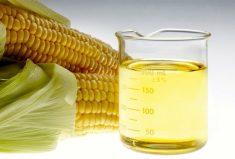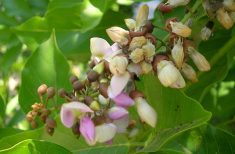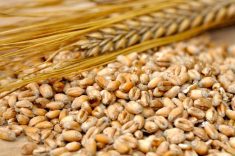Canadian crop commodity groups are hailing the federal government’s move to ratify Canada’s participation in the international UPOV ’91 treaty as a signal the country is “open for national and international investment.”
Canada’s representatives to the World Trade Organization, on Friday in Geneva, deposited the government’s “instrument of ratification” for the 1991 Act of the International Union for the Protection of New Varieties of Plants (UPOV ’91).
Agriculture Minister Gerry Ritz said Monday the move finalizes one of the main measures of the government’s Agricultural Growth Act, which was passed this spring and brought Canada’s plant breeding legislation in line with the UPOV ’91 Convention.
Read Also

Alberta crop conditions improve: report
Varied precipitation and warm temperatures were generally beneficial for crop development across Alberta during the week ended July 8, according to the latest provincial crop report released July 11.
“With the ratification of UPOV ’91, plant breeders have more protection and farmers have better access to a wider variety of seeds,” the government said in a release Monday.
The treaty, the government said, “encourages increased investment in plant breeding and brings Canada in line with trading partners, allowing Canadian farmers to be more competitive in the global marketplace.”
“We have been operating under the UPOV ’91 Convention since February, but now it has been announced to the world,” Canadian Seed Trade Association president Dave Baute said in a separate release.
“After 22 years of hard work, Canada’s formal ratification of the 1991 UPOV Convention places the agricultural sector solidly on the world stage and confirms that the door is open for international and domestic collaboration and innovation.”
Since the Act was passed in late February, the CSTA and other crop commodity groups said Monday, “new varieties of wheat, oats, flax, and potatoes, that would never have come to Canada without the updates to Canada’s Plant Breeders’ Rights (PBR) legislation, have become available.”
PBR is federally-mandated intellectual property protection for plant breeders who develop new plant varieties and want to sell and collect royalties from the sale of seed or plant genetics.
Canada, the government said Monday, has already seen a 20 per cent increase in the number of PBR applications since the Agricultural Growth Act came into force this year.
Formal UPOV ’91 ratification, the groups said, “confirms to the world that Canada supports an agricultural sector that is sustainable and competitive and that investment is welcome domestically and internationally.”
“Stronger intellectual property rights have proven to provide greater incentives to increase investment in research and development for Canada’s crop sector, giving our farmers greater access to the newest crop varieties,” Ritz said.
Critics of UPOV ’91 such as Canada’s National Farmers Union have said the treaty will make it “much more difficult” for farmers to save and reuse seed, forces them to pay more for seed and consolidates control over seed with the “world’s largest agribusiness corporations.”
Bringing PBR in line with UPOV ’91, the government said, doesn’t change what farmers are allowed to do with respect to protected plant varieties, but is meant to “facilitate a breeder’s ability to enforce his/her rights on protected plant varieties.”
The government has also said Canada’s UPOV-based PBR legislation enshrines the “farmers’ privilege,” allowing farmers to save, clean, treat and store seed produced from a protected plant variety and use it for replanting on their own farms.
“If farmers are obtaining seed of a protected variety legitimately, then there will be no increased liability.” — AGCanada.com Network















